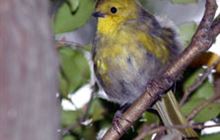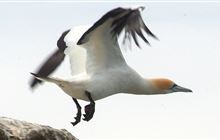Review of the Wildlife Act 1953
Introduction
The 70-year-old Wildlife Act 1953 is being repealed and replaced with modern legislation that will better protect native species.Strong support for replacing the Wildlife Act
In 2022, the Department began a first principles review of the Wildlife Act 1953. DOC held 40 hui with tangata whenua, key stakeholders and statutory bodies to better understand the problems with the current Act and how to improve it. We also heard people’s aspirations for future species management.
The feedback from this engagement indicated that there is widespread support for reforming the Wildlife Act and a shared vision for native species.
Read the Minister of Conservation’s latest announcement about the next phase of work for the Wildlife Act review.
Media release 9 September 2023: New Wildlife Act to better protect native species
View a summary of the current Wildlife Act 1953.
Issues with the current Act
More than 4,000 of our native species are threatened with extinction or at risk of becoming threatened if declines continue. There are many drivers of biodiversity loss, such as:
- climate change
- changes in how land and waters are used
- the impacts of introduced animal pests and weeds
- pollution
- the exploitation of some species
Repealing and replacing the Wildlife Act is an opportunity to consider the best way to protect our precious taonga species, and to address the issues identified in the review of the Act.
The current Act:
- lacks a clear purpose
- does not address threatened species very well – it lacks specific tools to protect them, and many species at risk of extinction are not covered by the Act
- prevents fulfilment of some obligations under Te Tiriti o Waitangi.
Replacing the Wildlife Act will mean we can:
- be clearer about protection for native species
- have better tools to address current and future threats to species
- better consider the variety of ways people value and want to interact with species
- better incorporate mātauranga Māori and tikanga, and the exercise of kaitiakitanga and rangatiratanga.
Next steps
DOC will develop policy options for the framework of a new species management Act to replace the Wildlife Act 1953.
DOC will also undertake further work to understand where targeted amendments to other conservation legislation could address pain points across the conservation system.
The Minister of Conservation will report to Cabinet on both the policy framework for a new Act and priority targeted amendments in the first quarter of 2024.
Pending Cabinet decisions, DOC expects to carry out public consultation on the proposed approach and framework for a new Act in mid-2024.
Strategic Oversight Group for the review
The Minister of Conservation has appointed an independent expert group to provide collective conservation knowledge and advice on the review of the Wildlife Act 1953.
Read the Strategic Oversight Group advice provided to the Minister (PDF, 284K) on 27 April 2023.
The 10 members bring diverse skills and expertise in te ao Māori, conservation, law, environmental policy, tourism, science, game animal management and governance.
The Strategic Oversight Group (SOG) members are:
- Aroha Mead (chair)
- Bruce Clarkson
- Debs Martin
- Garry Ottmann
- Greg Duley
- Hoani Langsbury
- Jacinta Ruru
- Nicola MacDonald
- Rebecca Ingram
- Shay Schlaepfer
Five members of the Strategic Oversight Group have participated in related advisory groups, including:
- the Interim Oversight Group advising on implementation of Te Mana o Te Taiao-Aotearoa New Zealand Biodiversity Strategy 2020, and
- the Options Development Group supporting the partial review of general policies for conservation and national parks.
Their appointment to the Strategic Oversight Group enables connection and alignment between these work areas.
Other members of the Strategic Oversight Group were nominated by conservation boards, the Tourism Industry Association, Fish and Game, the Game Animal Council, and the Environmental Defence Society. Members are not representing their organisations, but have been appointed based on their individual skills and expertise.
Cabinet report back on the review of the Wildlife Act 1953
Read the July 2023 Report back on the review of the Wildlife Act 1953 (PDF, 1622K).


